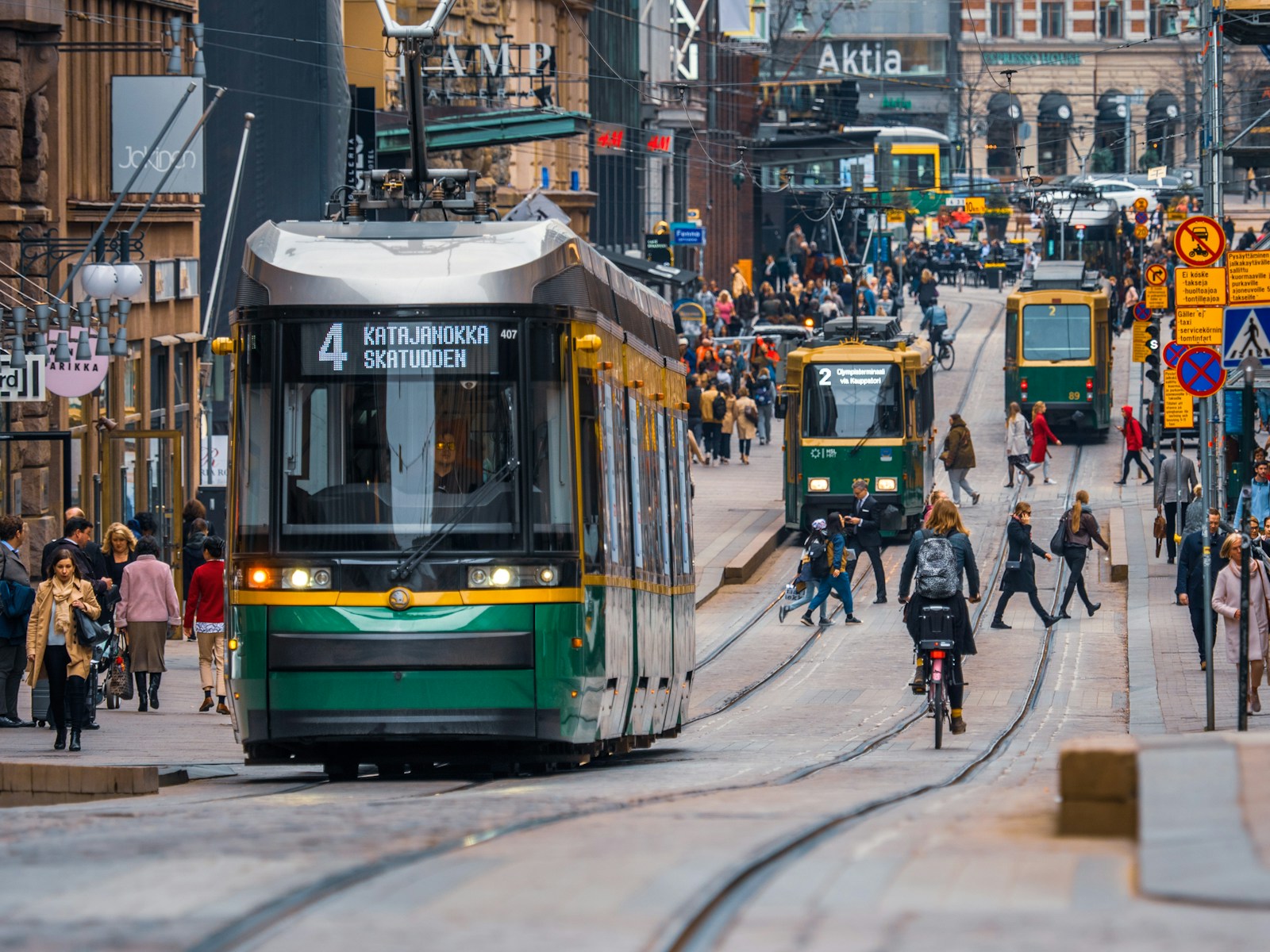Finland, a Nordic country known for its high standard of living, robust economy, and strong social welfare system, consistently ranks among the richest nations in the world. Its high GDP per capita, low levels of poverty, and impressive quality of life make Finland a model of economic prosperity and social well-being. However, Finland’s wealth is not the result of any single factor but is instead built on a combination of industrial development, innovation, education, and good governance.
In this article, we’ll explore the key reasons why Finland is so rich, examining the role of its natural resources, education system, high-tech industries, welfare state, and political stability in building a prosperous and sustainable economy.
1. A Strong Industrial and Export-Oriented Economy
One of the primary reasons behind Finland’s wealth is its diversified economy, which is heavily reliant on both manufacturing and high-tech industries. Finland has a well-developed industrial sector that focuses on exporting high-value products to global markets, which has been a major driver of economic growth and wealth accumulation.
Forestry and Natural Resources
Finland’s economy has historically been built on its vast forest resources. The country is covered by large forests, making timber and paper production key industries. Finnish companies like UPM, Stora Enso, and Metsä Group are global leaders in the production of wood products, pulp, and paper. The forest industry remains an important part of Finland’s economy, contributing significantly to its exports and employment.
High-Tech Industries and Innovation
In recent decades, Finland has transformed itself from a resource-based economy into a global hub for high-tech industries and innovation. Finnish companies like Nokia played a pioneering role in the development of the telecommunications sector, making Finland a global leader in mobile technology. Although Nokia’s dominance has declined, Finland continues to be a hub for tech start-ups and IT services, particularly in areas like software development, gaming, and digital solutions.
The rise of mobile gaming is another key sector in Finland’s modern economy. Companies like Supercell, the creator of popular games like Clash of Clans and Hay Day, have become international successes, contributing to Finland’s wealth and technological reputation.
Machinery and Manufacturing
In addition to its forestry and high-tech sectors, Finland also has a strong manufacturing industry, producing machinery, equipment, and electronics for both domestic use and export. Finnish companies like Kone (a global leader in elevator and escalator production) and Wärtsilä (a leading manufacturer of engines for marine and energy industries) have helped Finland secure its place in global markets.
The diversity of Finland’s economy, with sectors ranging from traditional industries like forestry to modern high-tech industries, ensures that the country remains resilient to economic shocks and can adapt to changing global markets.
2. World-Class Education System and Investment in Human Capital
One of the most important factors contributing to Finland’s wealth is its world-class education system. Finland consistently ranks at the top of global education rankings, with a strong focus on equal access to education and high-quality teaching. Education in Finland is considered a cornerstone of the country’s prosperity, providing its citizens with the skills and knowledge needed to compete in the global economy.
Free Education and Lifelong Learning
In Finland, education is free for all citizens, from early childhood through university. This universal access to education ensures that every Finnish citizen has the opportunity to pursue higher education and gain valuable skills that are essential for economic success. The Finnish education system also places a strong emphasis on lifelong learning, with adults having access to various vocational training programs and courses to update their skills.
Teacher Training and Educational Excellence
Finnish teachers are among the most highly trained and respected in the world. Teachers in Finland are required to have master’s degrees and undergo rigorous training, ensuring that they are well-prepared to deliver high-quality education. This focus on professional development has helped make the Finnish education system one of the best in the world, producing a highly skilled and educated workforce.
Finland’s education system is also known for its focus on critical thinking, problem-solving, and creativity, which are essential skills in today’s knowledge-based economy. This approach to education fosters innovation and prepares students to succeed in high-tech industries, further contributing to Finland’s wealth.
Economic Impact of Education
The high levels of education in Finland have been instrumental in building a productive and innovative workforce. An educated population is more likely to innovate, adapt to new technologies, and contribute to the growth of high-value industries, all of which are critical to maintaining a competitive economy. Finland’s investment in education has also helped reduce unemployment and increase labor force participation, contributing to overall economic growth and wealth.
3. Innovation and Research: Finland’s Knowledge-Based Economy
Innovation and research and development (R&D) are critical drivers of Finland’s wealth. Finland has made significant investments in R&D, particularly in sectors like information technology, biotechnology, renewable energy, and telecommunications. The Finnish government, universities, and private companies all collaborate to foster a culture of innovation, positioning Finland as a global leader in high-tech industries and sustainable technologies.
Investment in Research and Development
Finland consistently ranks among the top countries in the world in terms of R&D spending as a percentage of GDP. The country’s commitment to R&D has led to breakthroughs in several key industries, including telecommunications, pharmaceuticals, and renewable energy. Companies like Nokia, Rovio (creators of Angry Birds), and Neste (a global leader in renewable fuels) have all benefited from Finland’s innovation-friendly environment.
Public-Private Partnerships and Innovation Hubs
Finland has developed a strong ecosystem of public-private partnerships that encourage collaboration between the government, research institutions, and businesses. Innovation hubs, like Espoo’s Otaniemi and Helsinki’s StartUp Sauna, provide support for start-ups and entrepreneurs, helping them turn innovative ideas into successful businesses.
These innovation hubs have contributed to Finland’s reputation as a start-up capital, particularly in areas like mobile gaming, software development, and green technology. By investing in cutting-edge industries, Finland has created new opportunities for economic growth and ensured that its economy remains competitive in the global market.
4. The Finnish Welfare State and Social Safety Nets
A key reason for Finland’s wealth is its comprehensive welfare state, which provides all citizens with access to essential services such as healthcare, education, social security, and pensions. Finland’s welfare system is built on the principles of universalism and redistribution, ensuring that wealth is shared broadly across society, reducing poverty and inequality.
Universal Healthcare and Social Security
Finland’s universal healthcare system ensures that all citizens have access to high-quality medical services, regardless of their income or social status. Healthcare in Finland is primarily funded through taxes, which allows for affordable healthcare for all and contributes to the overall well-being of the population. A healthy population is more productive and can contribute more effectively to the economy.
Finland also provides a wide range of social security benefits, including unemployment benefits, disability support, and pensions. These programs help protect individuals and families during times of financial hardship, ensuring that no one falls into poverty. The country’s generous parental leave policies and childcare services also enable a higher female labor force participation, which has contributed to Finland’s economic growth.
Income Equality and Social Cohesion
Finland has one of the most equitable income distributions in the world, thanks to its progressive taxation system and social welfare policies. The Finnish welfare state helps reduce income inequality by providing all citizens with access to essential services, ensuring that wealth is distributed more fairly across society.
This focus on income equality and social cohesion creates a stable and prosperous society where citizens trust their government and feel secure. Finland’s high levels of social trust contribute to its economic stability, as a harmonious society is more resilient and productive.
5. Political Stability and Good Governance
Finland’s economic success is also closely tied to its high level of political stability and good governance. Finland consistently ranks among the least corrupt countries in the world, according to Transparency International. The country’s political system is characterized by transparency, accountability, and effective institutions, all of which create a stable environment for businesses and individuals to thrive.
Low Corruption and Trust in Government
One of the reasons for Finland’s economic success is its low levels of corruption. The country’s strong institutions and transparent government practices ensure that public resources are used efficiently and that citizens have trust in their political leaders. This high level of trust fosters social cohesion and creates a positive environment for investment and economic growth.
Sound Economic Policies and Fiscal Responsibility
Finland’s government has consistently implemented prudent economic policies that promote growth while ensuring social equality. Finland’s fiscal policy is based on long-term financial planning and fiscal responsibility, ensuring that public debt remains low and that the country’s welfare system is well-funded. This commitment to fiscal responsibility has allowed Finland to avoid many of the economic crises and financial instability that have affected other European countries.
6. Environmental Sustainability and Green Economy
Finland is a global leader in environmental sustainability and has made significant investments in green technology and renewable energy. The country’s commitment to sustainable development has not only enhanced its international reputation but has also contributed to its long-term economic success.
Renewable Energy and Green Innovation
Finland has set ambitious goals for reducing its carbon emissions and transitioning to a green economy. The country generates a significant portion of its electricity from renewable sources, particularly biomass, hydropower, and wind energy. Finnish companies like Neste have become global leaders in the production of renewable fuels, further contributing to Finland’s economy and environmental goals.
Sustainable Forestry and Circular Economy
Finland’s forestry industry is a model of sustainability, with strict regulations in place to ensure that forests are managed responsibly. Finland is also a pioneer in the development of the circular economy, which focuses on minimizing waste and making the most of natural resources. By investing in sustainable practices, Finland has created new industries and jobs while preserving its natural environment for future generations.
Conclusion
Finland’s wealth and prosperity are the result of a combination of factors, including its strong industrial base, high levels of education, commitment to innovation, and comprehensive welfare state. Finland has successfully transformed itself from a resource-based economy into a global leader in high-tech industries and sustainable development.
The country’s focus on social equality, political stability, and environmental sustainability has created a harmonious and prosperous society where wealth is distributed fairly and opportunities are available to all citizens. Finland’s economic model, which combines a strong welfare state with a competitive market economy, serves as a blueprint for other nations seeking to achieve sustainable and inclusive growth.




